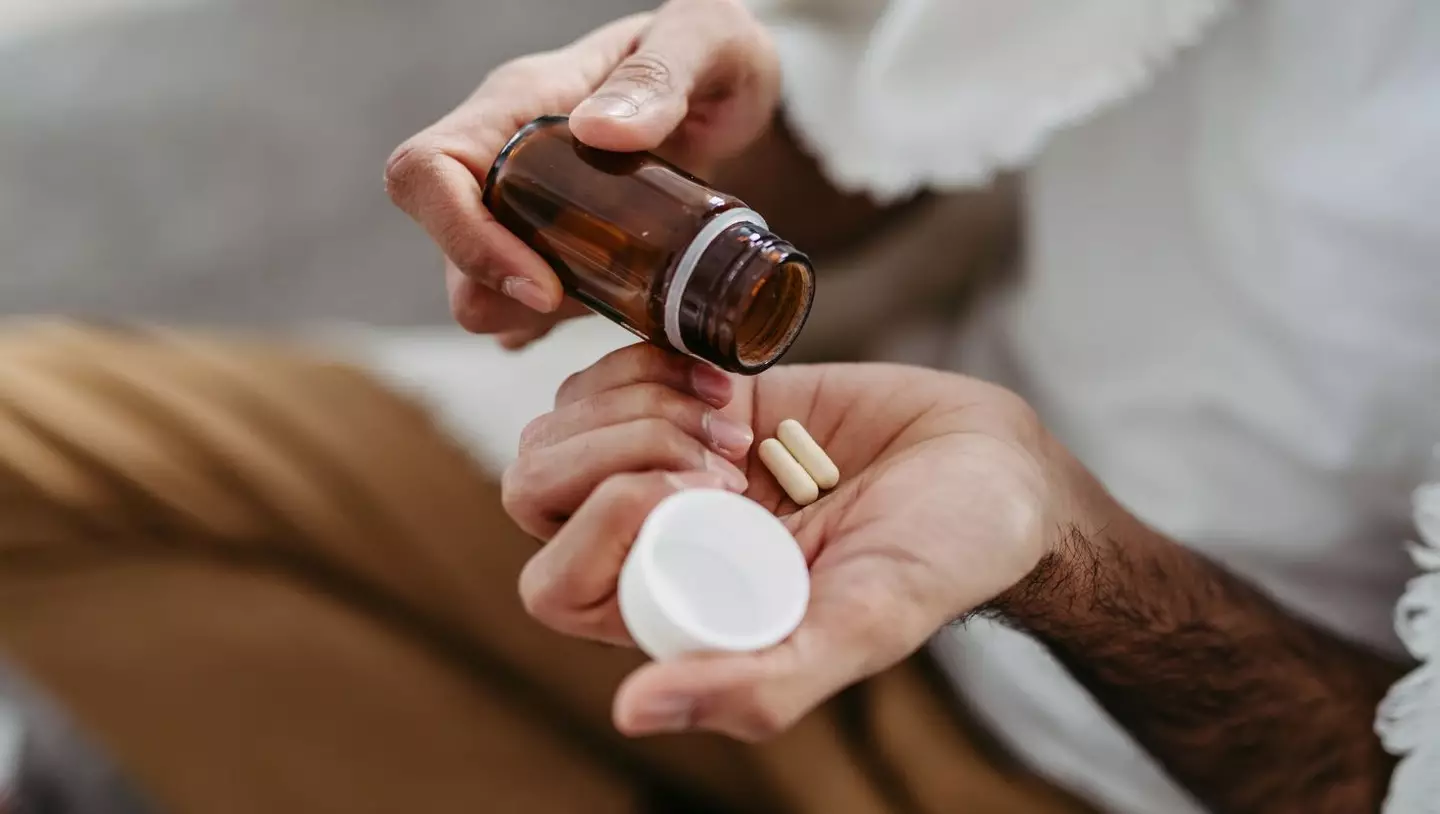
Alcohol has become somewhat synonymous with Christmas, with mugs of mulled wine and hot chocolate spiked with Bailey’s becoming the ultimate weeknight indulgence for many.
And whether you’re knocking back pints at the pub with your school friends or necking Sambuca shots amid a big Boxing Day blowout, it’s easy to get carried away.
If you’re someone who loves a festive tipple or two, then heed this warning - washing certain medications down with alcohol isn’t always the best idea, according to a pharmacist.
This year, medical experts are working harder than ever to educate drinkers on exactly how dangerous it could be if they decide to chase prescription drugs with beer, wine, or spirits.
Advert
Expert pharmacist Deborah Grayson has said that certain booze-med combinations can cause internal bleeding, debilitating liver damage, and may even prove fatal if you’re not careful.
Speaking to press earlier this week, the medical professional outlined various medicinal pills and syrups that you should never blend with alcohol.
Antibiotics
The first is antibiotic tablets like metronidazole, often used to treat skin and mouth infections, as well as bacterial vaginosis and pelvic inflammatory disease, the NHS stated.
If you mix this particular antibiotic with alcohol, then you could start to feel extremely poorly and in pain, as per Grayson.
She told the Daily Mail: “That warning is on the label, but sometimes people don't realise that even just a tiny bit of alcohol such as a sherry trifle can cause a significant reaction.”
Other antibiotics that should be avoided being consumed with the likes of gin and whisky include ciprofloxacin, doxycycline, and other tetracyclines.
Antibiotics aren’t the only medications you need to avoid taking with alcohol, the expert confessed.
Blood-thinning tablets
.jpg)
Blood-thinning medications, including anticoagulants and antiplatelets, help to prevent clots in your blood vessels, as per the Stroke Association.
If you mix these medications with alcoholic beverages, then deadly side effects like heart attacks and strokes could occur.
According to the pharmacist, this is because chemicals may prevent the thinner from working efficiently, allowing the body's blood to thicken.
Even though the British Heart Foundation (BHF) confirmed it’s okay to consume a small amount of alcohol whilst using warfarin - an oral anticoagulant - it should be noted that too much could increase your risk of a bleed.
“Also, if you sustain an injury when you’re taking warfarin, you’re more likely to suffer significant bruising and delayed recovery,” said Dr Mike Knapton, Associate Medical Director (Care and Prevention) of the BHF.
Anti-anxiety drugs
Anxiolytics are medications that can treat anxiety symptoms, with the most common being benzodiazepines, a group of medications also used as muscle relaxants, and in the treatment of seizures and alcohol withdrawal, CAMH explained.
Drugs.com stated that if you drink while ingesting these meds, your symptoms, including drowsiness, impaired thinking, and respiratory depression (slowed breathing), can worsen.
Chronic alcohol abuse can also elevate the risk for liver disease, something that can also be caused by some medications.
ADHD meds
.jpg)
It’s estimated that around 2.6 million people in the UK have ADHD, with many opting to take Methylphenidate, Amphetamine, and Atomoxetine to manage the disorder.
According to Grayson, these drugs can mask the effects of alcohol, potentially leading to unintentional overconsumption and a higher risk of harm.
Booze can also interact with the meds, leading to increased heart rate and high blood pressure.
Sleeping pills
If you struggle to get your eight hours of sleep in, or you’ve been clinically diagnosed as an insomniac, then you may have turned to sleeping pills for help.
Whether you bought these over the counter or your doctor gave you the green light, you should be warned that you really shouldn’t drink while on the meds.
This is because of the increased risk of drowsiness, as well as the chance of the patient - if of an older age - suffering from a fall, Grayson said.
"Alcohol also disrupts normal sleep patterns, reducing the overall benefit of the medication,” she added.
More broadly, boozing should be avoided alongside the consumption of any type of drug that has sedative side effects.
"These include opioid painkillers, gabapentin [an epilepsy drug], other epilepsy medications, and sedating antihistamines like Piriton or Nytol," the pharmacist continued. "Mixing these can dangerously increase drowsiness and impair coordination or alertness."
Antidepressants

An estimated 89 million antidepressant drug items were prescribed in 2023/24, according to statistics published by the NHS.
If you sip on alcoholic cocktails whilst on antidepressants, then you run the risk of drowsiness and dizziness.
In more serious cases, drinking whilst taking Monoamine oxidase inhibitors (MAOIs) can trigger a dangerous blood pressure spike, potentially triggering a stroke.
Alcohol can also worsen low mood and reduce how well they work, Grayson added.
